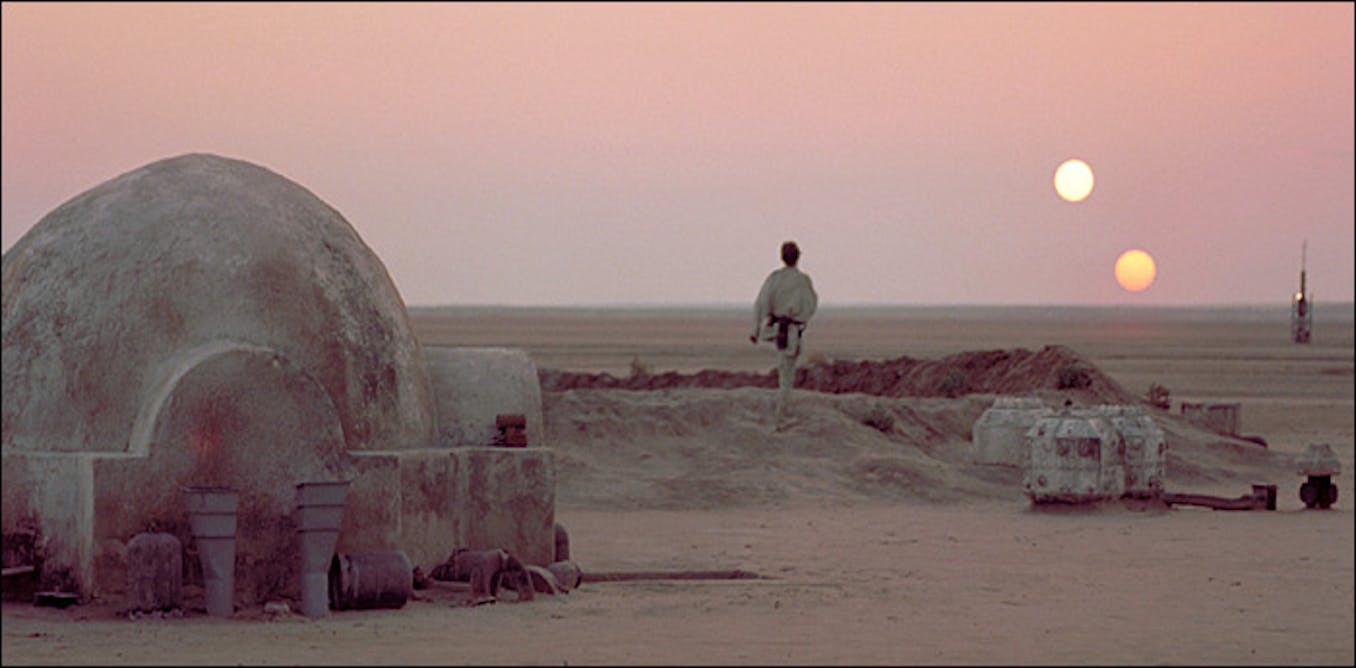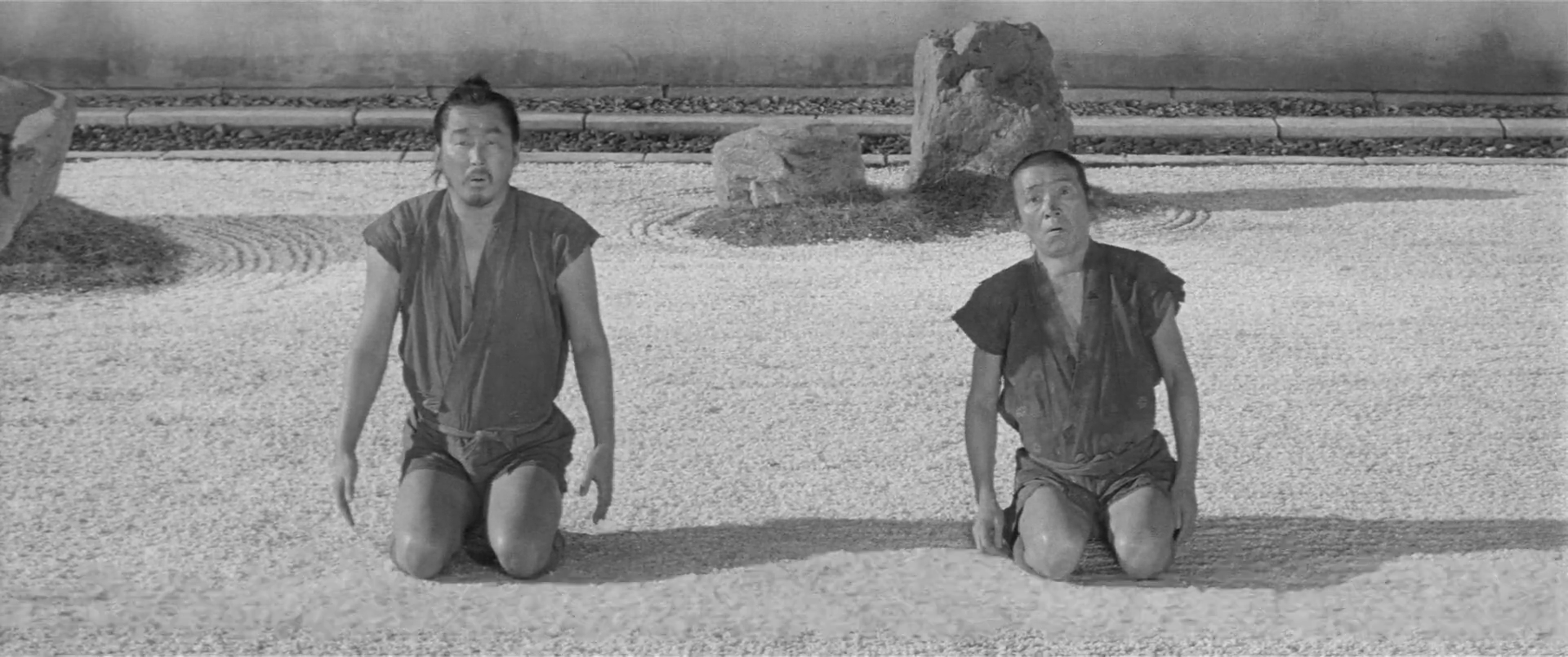
A Series of Writings on Films that I feel are essential viewings for film lovers, coupled with films that are personal to me
Spoilers Below
In May of 1977, pop culture and cinema was forever changed by the release of director George Lucas' Star Wars. Before it was Episode IV, before it was A New Hope, before people argued about who shot first- it was just that: Star Wars, as pure and simple as the story which it told. Star Wars- and the subsequent episodes of the Original Trilogy, The Empire Strikes Back and The Return of the Jedi- have become so ingrained in the popular imagination, so influential and obsessed over, that's it hard to look at it as just a movie. Like the stories of Superman and Batman- and even the work of J.R.R Tolkien, it's become something like a modern myth, almost a religion. This isn't to say Star Wars is above criticism or that it can't be analysed; just that it's so much bigger than just a really popular movie.
Star Wars is one of the biggest franchises in history but when Lucas was making the original film there was no guarantee it would be a success. We've become so accustomed the world of Star Wars but all this stuff about Jedi, the Force, Wookiees, and a big guy in a black suit with a breathing problem would have struck the people involved in the film's production as weird. Lucas' vision was of the pulpy/fairy tale sort rather than the cerebral nature of Stanley Kubrick's 2001 or the original Star Trek series. I don't even think 20th Century Fox had much faith in the film. Harrison Ford had worked with Lucas on Lucas' sophomore feature American Graffiti and would become a star with his performance as Han Solo. He's notorious for telling Lucas that the dialogue could be written but couldn't be spoken. In many ways I would argue Star Wars is the most mainstream and successful cult movie of all time.
In crafting the story for Star Wars, Lucas drew inspiration from various genres- samurai film, fantasy, pulp sci-fi, swashbuckling adventure, war epic, western, and coming of age/hero's journey tale. In regards to the specific films which influenced Lucas, Akira Kurosawa's 1958 film Hidden Fortress inspired Star Wars' narrative structure. Lucas begins the film with the droids C-3P0 (Anthony Daniels) and R2-D2 (Kenny Baker). Kurosawa tells the story of his film from the perspective of two peasants who accompany a general and a princess across enemy lines. Fritz Lang's groundbreaking 1927 film Metropolis inspired the design of C-3P0. The homestead burning on Tatooine comes from a similar scene is John Ford's The Searchers (1956). Leni Riefenstahl's Nazi propaganda film Triumph of the Will (1935) was the basis for the medal ceremony which closes the film.
What's impressive is how Lucas blends diverse genre tropes in to a cohesive whole where the archetypes and iconography compliment each other. The result is a film which feels familiar yet boldly new. I think a big reason for Star Wars' success is how its story already felt old-fashioned back in 1977- and accessible to general audiences- while expanding their idea of what could be accomplished cinematically. More on that later.
When talking about genre archetypes in relation to Star Wars, the character that stands out most to me is Obi-Wan "Ben" Kenobi (Alec Guinness). Ben represents both a samurai and an old wizard- like Gandalf in The Lord of the Rings. He begins to mentor Luke Skywalker (Mark Hamill) while still carrying the weight of his failure with his last apprentice, Darth Vader; Vader turned to the dark side and helped the Empire eliminate the Jedi Order. I feel Guinness is underrated in the part- maybe due to the fact we don't think of it as a performance, to many he just is Obi-Wan Kenobi. Guinness convinces me he is this old Jedi master, the Force exists and there was once Jedi Knights who protected the galaxy for thousands of years. And when Luke mentions the Clone Wars- which became a huge part of Star Wars media- it provides a sense of history to this universe.
Along with Guinness, Peter Cushing- who played Grand Moff Tarkin- was the other veteran actor with a major role in the film. Guinness represents the mythological side of this universe while Cushing is the face of the totalitarian and fascist Empire. I would argue he's the true villain of this film, not Vader. Tarkin orders Princess Leia's (Carrie Fisher) home planet of Alderaan destroyed by the Death Star just to prove a point. What's great about Cushing's performance is he doesn't over play Tarkin's evilness, which makes Tarkin's actions and demeanour all the more believable and unsettling.
But when it comes to villainy in the Star Wars saga, people will always think about Vader. If Vader isn't the greatest screen villain of all time then he's certainly up there. Even in the original film, before it's revealed he is Luke's father, Vader is a commanding and compelling presence. Vader represents the bygone time of the Jedi; He is more connected to the mystic side of the universe rather than the technical. He's contrasted with the technological and brute-force based Empire. During a meeting about the Death Star with the Imperials Vader states the station's power is meaningless next to the Force. General Motti (Richard LeParmentier) tells Vader not to attempt intimidation with his "sorcerer's ways." Motti sees Vader as something of a relic- calling the Force an "ancient religion." Vader displays his power by choking Motti via-the Force. Tarkin orders Vader to stop, further emphasising he's in charge, not Vader. Later Tarkin disregards Vader's sensing of Obi-Wan aboard the Death Star. Vader is an outsider among the Imperials, though we later learn the Emperor is a Sith like Vader.
Luke, Han and Leia come from different backgrounds. Luke is the farm boy who's never been off Tatooine, Han is the smuggler who never stays in one place, and Leia is a princess who's the only one of the three who has her mind on defeating the Empire. The film is largely about these three people coming together for a single purpose. It's part of why the series is so enduring- it believes regardless of background people can work together and accomplish great things.
Luke longs for a better life, one of adventure and purpose. His uncle Owen (Phil Brown) doesn't allow him to leave because he needs Luke's help on the farm. Owen is also afraid Luke will follow in his father's footsteps and become a Jedi Knight (in the context of this film Luke's father Anakin was murdered), We understand Luke's frustration but we can also see Owen sincerely cares about Luke and is reasonable. The tragedy of Owen and Beru's (Shelagh Fraser) murder is Luke never got to reconcile with Owen. Moreover, now Luke has no choice but to leave Tatooine. Obi-Wan becomes a father figure to Luke. When Obi-Wan dies Luke truly has to grow up. Hamill was already in his mid-20s when he played 19 year old Luke but he conveys Luke's immaturity, genuine decency and infectious energy perfectly.
Leia isn't afraid of Vader nor Tarkin. She's confident but we see her fear and desperation when Tarkin forces her to disclose the location of the rebel base or he'll destroy Alderaan. Her confident and arrogant exterior slips away; we see how powerless she- and the whole idea of royalty-is in this situation. She's snobbish in how she treats Luke and Han but comforts Luke after Obi-Wan's death. Despite losing her planet she shows compassion to the man who rescued her. The late Fisher plays these different sides of Leia's personality with grace, making them all feel part of the same person.
Han is the scoundrel with the heart of gold. The key to Ford's performance is you believe he's really out for himself while at the same time you buy that he comes back to help the rebellion at the film's conclusion. Ford is arguably the closest thing we have to a modern day Humphrey Bogart. His performance is charming, sly, ruthless and funny. The scene where he's talking over the intercom display Ford's ability to convincingly play the tough guy who's occasionally ill-equipped in certain situations.
I mentioned earlier that Star Wars expanded people's idea about what could be achieved cinematically. This is due to how groundbreaking and influential its visual effects (by John Dykstra and his team at ILM (Industrial Lights & Magic)) were. Star Wars is a film that embraces its goofy pulp sci-fi roots; while being more technically sophisticated then that sub-genre had been before The opening shot of the Star Destroyer chasing the Tantive IV is still an incredible visual marvel. It automatically establishes the rebels as the underdogs and the Empire as oppressive and all-encompassing. Ben Burtt's sound design also deserves credit. The sound design of Star Wars is so iconic all you have to do is hear the sound of a TIE fighter and you know what you're listening to.
For me, Star Wars isn't quite Star Wars without John Williams' music. The fanfare- accompanying the title as it recedes in to space and the opening scrawl is romantic, epic, poignant and thrilling to this day. The force theme, which plays over Luke looking at the twin sunset, invokes longing and the hope for a better future. It became such an indelible combination of visual and sound that Lucas ended the Prequel Trilogy Owen and Beru looking at the twin suns.
In 40 years, I think this film- and the Original Trilogy as a whole- will still be classic. It's world and its characters feel timeless- appealing to multiple generations and people of different backgrounds. It inspires the imagination and has a purity to it that's often missing in the modern blockbuster landscape. So, what is your favourite aspect of the original film, and what does it mean to you? Comment below and let me know.





No comments:
Post a Comment